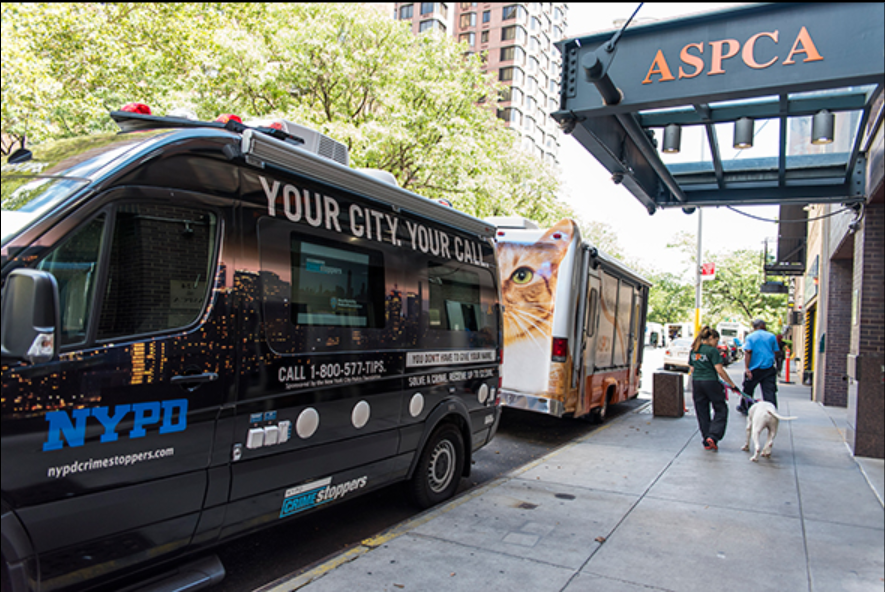Being the Animal’s Voice
Candace Krider
Ross University Vet Student
Veterinarians are charged with the task of educating their clients about the responsibilities of owning pets. Sometimes clients do not follow recommendations or owners do not seek medical attention at all or treat animals with neglect, abuse, or cruelty. There has been recent scientific research that has linked animal abuse with interpersonal violence making it even more important to recognize and address both. Interpersonal violence is anything from child maltreatment, domestic violence, or elder abuse. Veterinary forensics as a specialty has been developed and the International Veterinary Forensics Sciences Association has been formed to help with training veterinarians in recognizing animal maltreatment. There have also been several laws passed that allow veterinarians some type of immunity, either partial or full, for reporting suspected violence in the home. Other laws have made it mandatory for veterinarians to report these acts. The veterinarians that do report suspected animal maltreatment can relay this information to specially trained forensic veterinarians.
It takes special people to be able to look at the horrific things people can do to animals day to day and continue to want to serve as the voice for them. I had the opportunity to meet several of these people while I spent two weeks in New York City for an externship with the ASPCA. There is a special forensic unit within the ASPCA adoption center and hospital in NYC that is made up of veterinarians, technicians, and managers. It is a small team but have formed relationships with all departments of the ASPCA within the same building and in Long Island City. These departments include the behavior specialists, the veterinary hospital, adoptions, and the Cruelty Intervention Advocacy (CIA) team. They also have a formal partnership the New York Police Department (NYPD). The NYPD is responsible for law
 aspca.org
aspca.org
enforcement response to all animal cruelty complaints in New York City. I believe this relationship is a very special and important one since sometimes the way for animal cruelty, neglect, or abuse to be seen is by those that are responding to other crimes such as domestic violence in the home or to other forms of human abuse. This relationship allows for these people to observe and report the animals abuse that might otherwise go unnoticed. In other instances, they can remove the animals themselves and bring them into the ASPCA directly. Other times, teams created by the ASPCA travel to other states to rescue animals from crimes committed against them.
For most of my time during the ASPCA Forensic Externship, I was able to be present for, witness, and participate in the forensic evaluations and medical care of animals that came in as suspected victims of abuse, neglect, or cruelty. Each one was evaluated by the ASPCA veterinary forensic team. The evaluation included a full physical exam, photographs of the animal to document the condition of the animal when they are received by the ASPCA, request for additional diagnostics and treatments, and continued support and medical treatment while they are being rehabilitated. Many of these remain in the ASPCA’s care for extended amounts of time while cases are worked through the legal system. Even though this is true, these animals receive behavior training, routine exercise, and are very well taken care of during their time with the ASPCA.
Some of the cases I was able to be a part of involved failure to treat, starvation, abandonment, or just neglect in general. Many of these times, these animals came in extremely emaciated or with a hair coat so matted they lead to strangulating lesions. These are just examples of some of the cases that are seen at the ASPCA in NYC.
Other aspects of cases required forensic necropsies to take place. These are the other cases that do not have a happy outcome for these animals but there is still something that can be done to get justice for them. I was able to take part in a couple of cases where necropsies were required to gather further evidence to either support or refute that a crime took place. The ASPCA has their own necropsy room in the building where forensic necropsies or the documentation of wounds on deceased animals can take place.
Also, while in NYC, I was able to take a couple of days to work with the Cruelty Intervention Advocacy team. This is a program that works with certain animal owners that are hoarders, low-income pet owners, or victims of domestic violence with pets and may be having difficulty managing the pets that they own. It is help provided to attempt to help them keep up with the care and management of their pets. My first trip with the CIA team consisted of trips to all five boroughs of New York. I traveled to Long Island City via subway and was teamed up with Evan from CIA for the day.

We traveled first to Staten Island and eventually made our way back to Queens and then to the Bronx and Brooklyn. On our trips, we offered support to several individuals that needed help taking care of their animals. We were able to bring dog food to one woman, supplies for another man’s cats, and also offer guidance for a man with too many kittens that needed to be neutered and set up for adoption. On another day, I was teamed up with others from CIA and went to the Bronx for a wellness day. We provided physical exams, vaccinations, and education to an owner of several animals including, birds, guinea pigs, cats, dogs, and rabbits. It was amazing for me to see that the ASPCA does a lot in NYC to offer assistance and help to owners to prevent them from maltreatment of their animals.
Another aspect of forensic veterinary medicine is testifying in court for cases that veterinarians have worked. Dr. Robert Reisman is the Forensic Science Supervisor at the ASPCA and the mentor for the externship program. On one occasion, I was able to meet him at the Queens DA office to go over a hoarding case that he had been a part of since the beginning. Many aspects of the case were discussed including the extent of the hoarding, what Dr Reisman remembered about the scene, how many and the types of animals involved as well as other cases that were tried and had convictions and how they are used for the success of prosecuting future cases. Every case that is tried and successfully prosecuted lead to further laws in protecting animals against crimes.
In addition to the cases that are worked, and the help being offered, weekly meetings took place allowing the forensic team to get together to review cases they were handling, new and old, as well as a meeting in which representatives from all aspects of the care and management of these cases. The latter are meetings known as Animal Health and Welfare meeting where case statuses were reviewed, and decisions were made on what the next steps would be in the management including euthanasia decisions.
The goal, as I learned on my forensic veterinary externship, is not to gather information and evidence to convict a person of a crime. The goal is to use veterinary medicine to gather medical information and provide that to the legal team, so they can determine the legal aspects of the case. Forensic veterinary medicine is so important for the protection of animals. As I learned on my externship, there is still a long way to go to get the laws that are needed to protect animals and there is a fine line that is walked to make sure owner rights are not infringed upon but with people like those in the NYC division of the ASPCA Forensic veterinary team, things will continue to go in the direction that will protect animals and humans both.
Arkow, P., Boyden, P., Patterson-Kane. Practical Guidance for the Effective Response by Veterinarians to Suspected Animal Cruelty, Abuse and Neglect. www.avma.org
 Wednesday, November 11, 2020 at 01:00PM
Wednesday, November 11, 2020 at 01:00PM  ASPCA in
ASPCA in  News,
News,  Outside Learning Opportunities
Outside Learning Opportunities 

